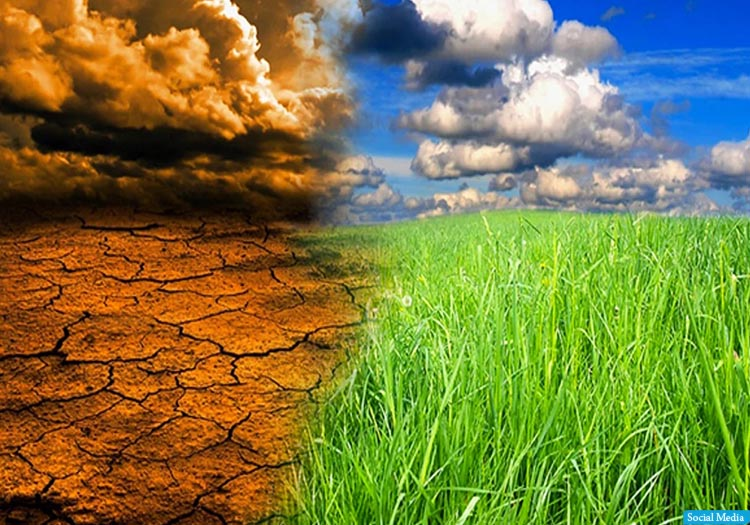RASC News Agency: Despite its minimal contribution to global greenhouse gas emissions, Afghanistan bears a disproportionate burden of the economic and social fallout from climate change. According to the Afghanistan Analysts Network, climate-related disasters naturally cost the country $550 million per year, but in times of severe drought, these losses can soar to $3 billion, further crippling an already fragile economy. In a statement marking World Water Day, the organization underscored the devastating impact of climate shocks, such as floods, droughts, landslides, avalanches, and rising temperatures, estimating that these disasters result in losses equivalent to 3.2% to 18% of Afghanistan’s Gross Domestic Product (GDP).
The report further highlighted Afghanistan’s severe vulnerability to climate change due to its inability to access international climate adaptation funds. This lack of financial resources has exacerbated environmental crises, with natural disasters especially in remote areas leading to plummeting agricultural yields, increased rural poverty, and widespread displacement. Moreover, the consequences of climate change extend beyond agriculture, affecting critical infrastructure, transportation networks, energy systems, and essential public services, including healthcare and education. “Climate change in Afghanistan is not just an environmental issue it is a crisis that fuels economic instability, food insecurity, mass displacement, and even gender-based violence, particularly in rural communities,” the report stated.
These alarming findings align with recent warnings from the International Committee of the Red Cross (ICRC), which revealed that approximately 33 million people in Afghanistan lack access to safe drinking water. The organization also noted that groundwater levels across the country particularly in Kabul are depleting at an alarming rate, posing a grave threat to water security.






